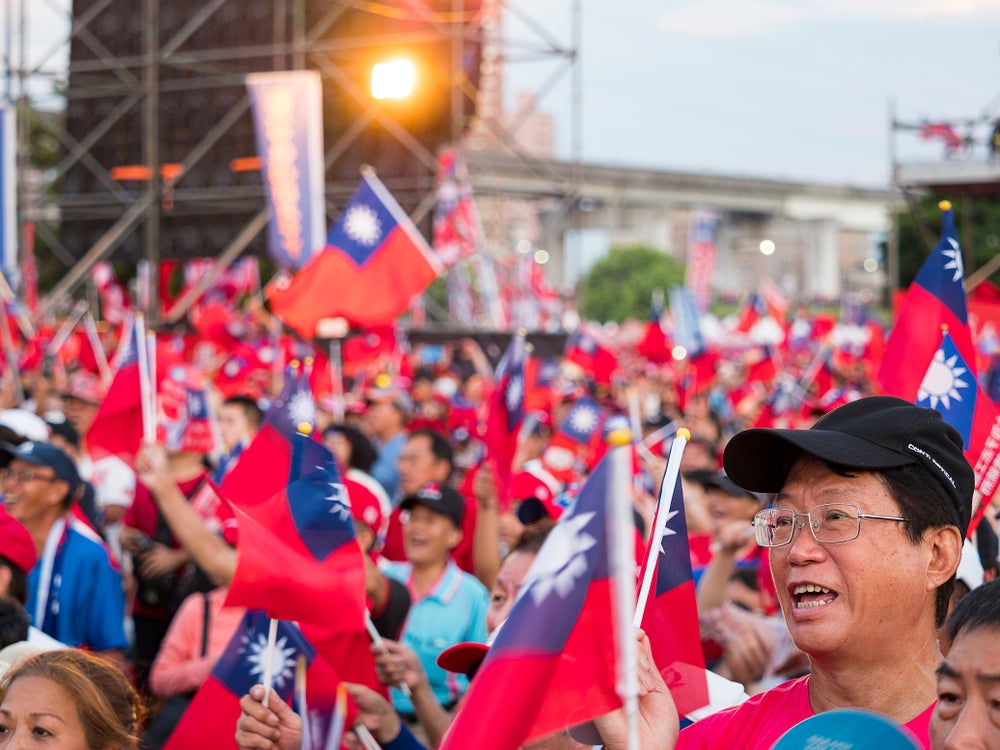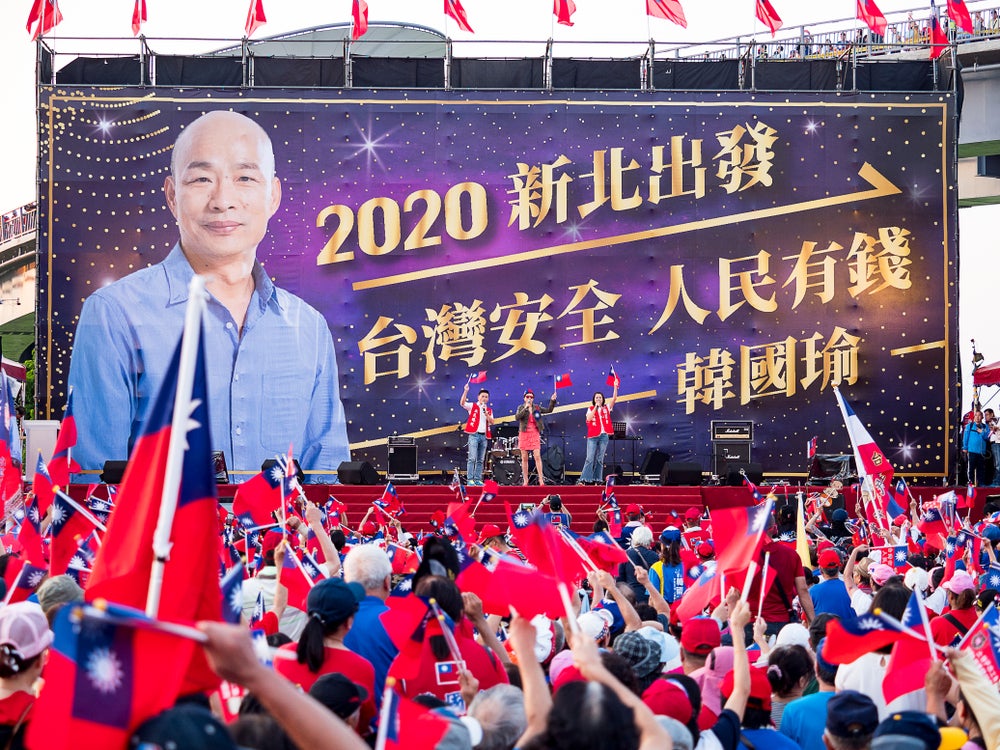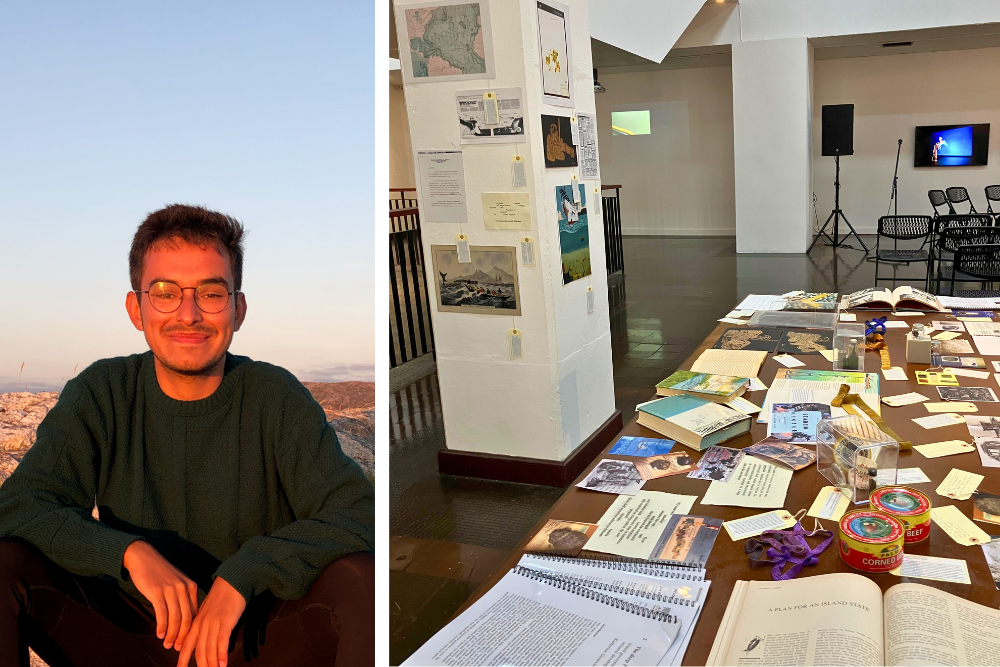The entangled economic life: Money, discipline, and identities across the Strait

https://doi.org/10.25542/n6x8-65w9
Winners and losers at the Tokyo Olympics were not only found in the arena of athletic games and national pride, but were also evident among businesses. Taiwanese celebrity Dee Hsu found herself losing four mainland Chinese product endorsements amounting to an estimated NTD 30 million[i] (SGD1.46 million) in one day, after she celebrated the victories of Taiwanese athletes at the Olympics and addressed them as ‘national players’ in her Instagram post. Mainland Chinese ‘little pinks,’ a term commonly used to describe Chinese young cyber nationalists, called her a ‘separatist’ and a ‘double-faced person’ for failing to meet their expectations. A brand she was endorsing subsequently cut ties with her, reiterating that ‘national interest is above all, (we) firmly uphold the one China principle.’[ii]
The surge of globalisation and neo-liberalism in the twentieth century has facilitated cross-border economic activities and brought expectations that global capitalism will eventually shape a world that transcends territorial boundaries and identities. Nonetheless evidence beyond economic statistics has shown that today’s capitalist development is increasingly enmeshed with identity politics.
Since China launched its economic reforms in the late 1970s, Taiwanese businesses from manufacturers to service and entertainment industries have flocked to China for its promise of cheap labour and large markets, while Taiwan was recorded as the seventh largest source of foreign direct investment (FDI) in China in 2020 according to China’s Ministry of Commerce, not accounting for what are thought to be huge Taiwanese investment flows via Hong Kong, China’s largest FDI source.[iii] On the other hand, in cases such as Dee Hsu’s, national politics also arises along with capital flows, a tightening nexus which sheds light on the entangled economic life as well as the challenges posed by rising identity politics in today’s global economy.
Buying hearts and minds?
First, the anecdote of the events resulting from the Tokyo Olympics unravels only the tip of the iceberg of cross-Strait discrepancies. The tensions between the governments in Beijing and Taipei have not abated despite increasing economic interflows and mainland China’s longstanding practices of United Front strategy for political unification. The United Front work is considered to have been successfully developed by the Chinese Communist Party (CCP) compared to other communist parties. Its fundamental purpose is to rally as many allies as possible to achieve a common cause, and its basic logics therefore involve support from from civil society that offers consent to its domination.
Against China’s economic rise, one of the common practices of the CCP’s United Front work in cross-Strait contexts is to manage Taiwanese people in mainland China, under a government system taking charge of the propaganda for unification with Taiwan. It therefore also functions as a form of corporatism, when not only nationalism is to be relied on in such political alliances to win over Taiwanese civil society, but also the need to consolidate the support by incorporating their economic interest.
In doing so, privileged status is granted to business people whose compliance are also demanded in return, such as expectations that they would return to Taiwan to vote for pro-China candidates with discounted flight tickets: a recent probe in Taipei found that funding for a ‘vote-buying’ scheme involving Taiwanese business people came from the Chinese government.
Nonetheless the latest developments have proven such efforts unsuccessful in buying hearts and minds thus far. The landslide victories of the DPP (Democratic Progress Party) in both the 2016 and 2020 Taiwanese presidential elections disclose stories on the other side of the spectrum. The presidential elections in Taiwan have conventionally been the testing ground for Taiwanese identity politics, and President Tsai Ing-wen’s government secured the second term by drawing more votes than any presidential candidate in Taiwan since the direct presidential election first took place in 1996.
The 8.17 million votes Tsai received, compared to the 4.81 million votes her party DPP generated in the party vote in the same election, says more about an enhanced consciousness against mainland China’s economic and political influence in Taiwan that superseded partisan ideologies embraced by traditional voters. In addition, statistics compiled by Taiwan’s Ministry of Economic Affairs have also shown that Taiwanese businesses started to divest investment from China. Taiwanese investment into China fell from over 80 per cent of Taiwan’s total FDI-outflow in 2010 to 33 per cent in 2021 as companies relocate factories to lower-cost countries in Southeast Asia, to the United States upon client’s request, or back to Taiwan.

The disciplines and counter-ideologies
The first thing to ask about such a rising identity in Taiwan is whether these groups that form alliance with China can represent the interest of the Taiwanese civil society. On the China side, there were open tactics to affect the turnout of likely pro-China Kuomintang (KMT) voters; on the Taiwan side, there has also been an increasing turnout of Taiwanese young voters below forty years old who, according to Taiwan’s Central Election Commission, comprise about one third of the eligible voting population.
Their turnout had been lower than enthusiastic older generations in past elections; nonetheless the fear that their homeland could be subsumed into China like Hong Kong aroused their sense of crisis. This is evident by a record high traffic volume of Taiwan High Speed Rail on the day before the 2020 election, as young voters returned home to vote, especially the traffic heading to the South where Tsai won by large margins as well as Kaohsiung City where the KMT presidential candidate Han Kuo Yu was then the mayor.
The fermenting China factor and the scepticism toward Han mobilised Taiwanese voters and prompted a high turnout of 74.9 per cent, compared to 66 per cent four years ago. Taiwanese young people’s increasing participation in politics and their shared values in support of democracy are re-shuffling traditional partisan ideologies and the ‘iron electoral districts’ that have long been shaped by traditional voters.
Second, while mainland China adopts united front work to attract Taiwanese business people with economic incentives, nationalism and national identities also shape economic policies and processes in Taiwan as a way to counter the magnetic pull of the expanding Chinese economy. This was most notable in the 1990s under Taiwan’s former President Lee Teng-hui’s governance when economic nationalism shaped Taiwan’s globalisation policy to bypass mainland China’s influence, and the restructured state-business relations also transformed a new group of big capitalists into the national bourgeoisie.[iv]
When an all-encompassing westward policy was adopted later by President Ma Ying-jeou that aimed to enhance cross-Strait ties by increasing economic interflows, a culmination of resistance from the Taiwanese civic society emerged in the form of the Sun Flower Movement in 2014. This was followed by the landslide victory of DPP’s Tsai Ing-wen who assumed office and again proposed the New Southward Policy to continue Lee’s legacy and counter Taiwanese business people’s westward investments.
Surviving entangled relations
With respective contexts across the Strait, cross-Strait economic interflows have not changed much of the political struggles faced by Taiwanese business people, who find that their ambiguous status may cause problems. In some cases the United Front work, though conceding power to cross-Strait business elites, may turn against them in order to fulfill its eventual interest for unification, as the case of Hsu has shown. Some are also concerned about the costs and risks that need to be carefully managed while doing business in China; along with China’s rise to economic power, the state-business alliance may not represent the interest of the business when conflicts of interest arise.
Surviving the tricky situation, on the other hand, puts them in ethical dilemmas. After deleting the post that ignited the anger of mainland Chinese cyber warriors, Hsu said that she ‘needed some time to be left alone,’ followed by a post declaring ‘I am not pro-independence.’ This clarification was questioned by mainland Chinese netizens for being posted on a social media channel targeting mainland Chinese audiences, instead of the channel targeting her fans from most other places, including Taiwan. This disclosed a disciplinary system constituted by the nationalist discourse in Chinese markets, where biaotai (expressing political stance) has become the norm and the performance of identities has been the strategy to survive.
The capital flows between Taiwan and China have witnessed how nationalist pursuits are embedded in today’s transnational capitalism. The relationship between capitalists and states in such struggles include not only the state’s strategy to ‘manage’ business people, but also the strategies of capitalists to adjust themselves and negotiate between contesting identities.
Unresolved, however, are the ways in which such a process of economic expansion is accompanied by ethnic tensions, whether or not those involved choose to stand up for their identities, or choose performance as the strategy for keep business going in mainland China. Its future impact on the political landscape and global capitalist development deserves to be watched closely.
[i] Mirror Media [鏡週刊] (2021) ‘Dee Hsu lost product endorsements as the two words “national player” touched a raw nerve of mainland Chinese netizens’ [「國手」兩字搓陸網友敏感點,小S掉代言損失慘重] (2 August)。
[ii] ibid.
[iii] Liberty Times [自由時報] (2021) ‘Hong Kong taken as the third space for [Taiwanese enterprises’] trans-investment to reduce risks’ [西進以港當跳板 繞道第三地降風險] (31 September)
[iv] Wu, Rwei-ren (2016) ‘Hechao lun’ [On the Black Tide]. Zhaopo. New Taipei: Zuoan wenhua.
The views expressed in this forum are those of the individual authors and do not represent the views of the Asia Research Institute, National University of Singapore, or the institutions to which the authors are attached.








